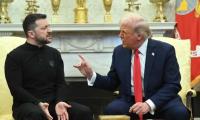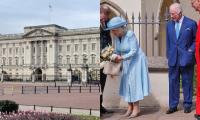financial assistance to the favoured candidates or a group of political parties to achieve desired result by polluting election process and to deprive the people from being represented by their chosen representatives.
Legal proceedings shall be initiated against the politicians who have allegedly received donations to spend on their election campaigns in the 1990 election. Therefore, transparent investigation on the criminal side shall be initiated by the FIA against all of them and if sufficient evidence is collected, they shall be sent up to face the trial according to law.”
An FIA team led by its Karachi Director Shahid Hayat is investigating the Asghar Khan case. While Beg has refused to cooperate with the FIA, Prime Minister Nawaz Sharif has already recorded his statement. The PM has said he did not receive any money from the ISI during the 1990s elections, adding that if proved otherwise, he would return the amount with interest. The IJI had won the 1990 elections and Nawaz Sharif became the prime minister. The PM further told the FIA investigators that during the 1990 election campaign, people from various walks of life had contributed to campaign funds and it was difficult to qualify and quantify it. “If, however, the inquiry finds that such a transaction did take place, I won’t have a problem returning the amount with interest,” the PM reportedly added.
During the hearing of the Asghar Khan case, Younus Habib stated before the Supreme Court Chief Justice Iftikhar Chaudhry on March 8, 2012 under Section 161 CrPC that he himself handed over Rs3.5 million to Nawaz Sharif [after the 1990 polls] at his Lahore residence while Rs2.5 million had been sent to Shahbaz Sharif through a Telegraphic Transfer [which was made by Asif Jamshed] on September 27, 1993. Although the Sharif brothers had described Younus Habib’s deposition as a pack of lies, Gen Aslam Beg and Lt Gen Asad Durrani confirmed in their respective affidavits that Nawaz Sharif was amongst the recipients of the funds arranged by Younis Habib and distributed by the ISI under President Ghulam Ishaq’s orders. Younus Habib, who has already spent four years in jail, had further claimed that he was asked to arrange Rs350 million for the former army chief before the 1990 general elections.
As far as Gen Aslam Beg is concerned, he has been named in several controversies ever since his retirement in August 1991. But the Asghar Khan case damaged him the most. Despite Beg’s repeated claims that he had ordered distribution of money among anti-PPP parties before the 1990 elections on President Ghulam Ishaq’s orders, Younus Habib, the banker who had arranged the money, had claimed in his affidavit before the apex court that Beg was the actual mastermind and that President Ghulam Ishaq was brought in later when a meeting was arranged at the Balochistan House in Islamabad. Similarly, Lt Gen Durrani also submitted an affidavit with the apex court, confirming that he had received instructions from Gen Aslam Beg to provide ‘logistic support’ for disbursement of donations made by certain ‘businessmen of Karachi’ to the IJI election campaign of 1990, and was told that the operation had the blessings of the government, rebutting Beg’s claim that he acted only as a ‘watchdog’.
During the hearing of the Asghar Khan case in the Supreme Court, General Beg was on record having said that, “The money was donated by Younus Habib. The ISI was acting under the directions of higher authorities”. He admitted that it was a routine practice with the ISI to support the candidates during elections under the direction of the chief executive of the civilian government. In his statement submitted before the apex court, he said that the then DG ISI Lt Gen (retd) Asad Durrani had acted within the limits of the “lawful command” received from the then President Ghulam Ishaq Khan’s Election Cell. Interestingly, over the distribution of Rs140 million among opposition political parties and leaders by the ISI during his tenure as COAS, Beg presented the definition of “lawful command” as interpreted by the Pakistan Army Act Section 33 Mote b (3) to justify the act of money disbursement.
According to the said interpretation, “A superior can give a command for the purpose of maintaining good order or suppressing a disturbance or for the execution of a military duty or regulation. The receipt of this amount by the ISI from Younis Habib in 1990 was under the directions of the chief executive.” While refuting Younus Habib’s March 2012 affidavit [with the Supreme Court], Gen Aslam Beg described it as a totally malafide attempt to dramatise and scandalise the sanctity of the proceedings pending before the apex court. “I have no doubt in my mind whatsoever that the bundle of lies put together by Younus Habib in his affidavit is inspired by political expediency of the vested interests and Younus Habib’s effort to sanctify his sordid deals, by linking-up the matter with “fund raising for elections, in national interest. His affidavit is a cover-up for his own crimes”.
However, whatever the truth may be, Gen Aslam Beg continues to defy the Supreme Courts orders that had directed the authorities to initiate necessary action against all those involved in the Asghar Khan scam.
Market insiders fear that inaction by government would seriously hurt interest of consumers
Through order, election commission had directed petitioner and defence to complete their arguments on April 22
AAG said that names have been removed from ECL as per court order
Ambassador Naqvi warned that proliferation of emerging technologies threatens to destabilise global security order
Youth in Punjab are being empowered through education, IT training, internships and employment, says Kakar
Pakistan-Russia Joint Working Group to Counter International Terrorism







